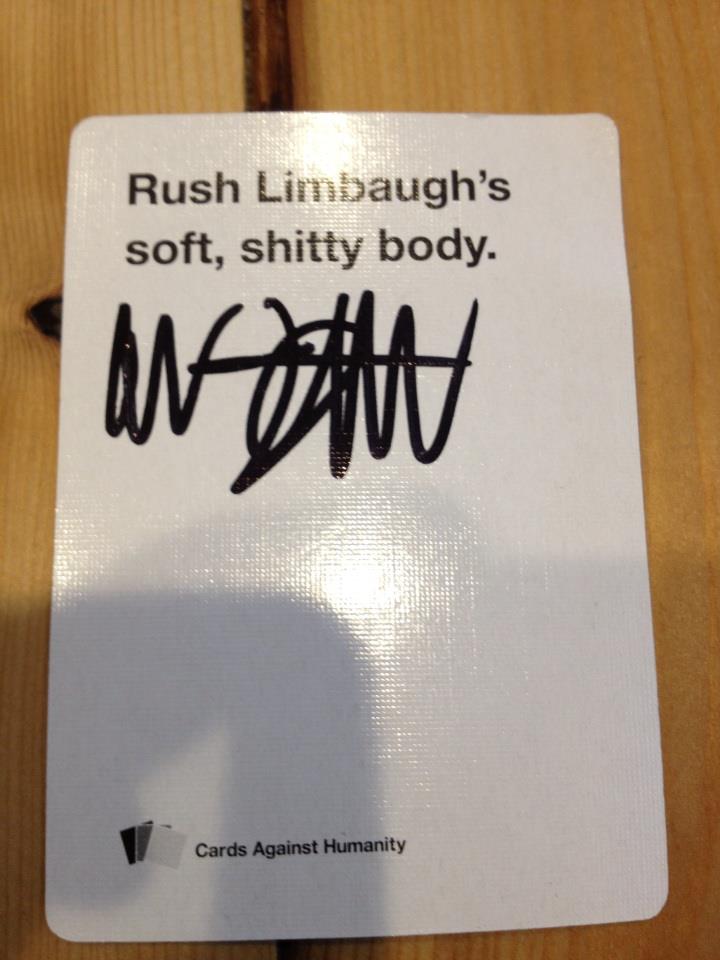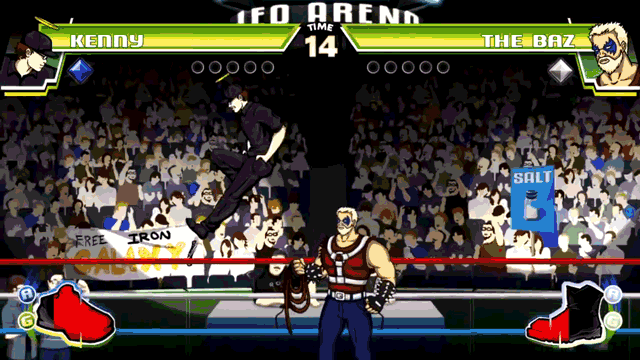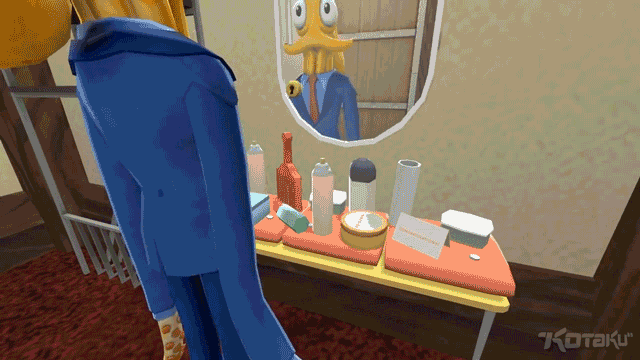On a Friday night in Logan Square, a dozen friends have gathered to play some video games. There aren’t enough stools and colourful chairs, but nobody cares. They line the walls, sit on the floor and huddle around the single plasma television waiting for their chance to play. Between rounds, they help themselves to beer and local Smoque BBQ delivery while catching up with old friends and meeting new ones. But crammed into this party isn’t just any group of friends. These are the people making the games defining Chicago’s game development culture.
But what is that culture exactly? “We haven’t figured it out yet,” says tonight’s host, Max Temkin, Chicago-based, independent game designer.
The city once had a thriving industry thanks to classic arcade companies from the ’70s coin-op and pinball days like Midway, and Chicago branches of massive, global publishers like Electronic Arts. But since 2007, poor management, unsustainable growth and an overall rough market caused their collapse. The few remaining big studios include Injustice: Gods Among Us and Mortal Kombat masterminds NetherRealm Studios and Jackbox Games, the trivia buffs behind You Don’t Know Jack. Now, far from the dominant California games industry, Chicago and its developers are left fending for themselves. However, as shrinking major publishers everywhere worry about the next generation, Chicago’s independent growth rises.
As shrinking major publishers everywhere worry about the next generation, Chicago’s independent growth rises.
Temkin says the lack of constant, corporate oversight lets strong, cooperative, indie developers drive the culture. “The games industry is primarily based in LA because that’s where entertainment happens. If you’re going to make an Avengers video game you better be near those movie studios so those deals can happen. Chicago is free of those restraints.”
This spirit of sharing and cooperation is apparent in nearby game design schools like DePaul University and at Maxistentialism, Temkin’s design company and the party’s location. In this office, nicknamed “Some Office,” friends can come and tinker on projects even if they don’t work directly for Temkin. In one corner there’s a photographer and a Kickstarter employee on a couch with web-themed pillows. In another there’s a demo of Teknopants’ anticipated indie fighting game and PAX hit Samurai Gunn, a game Maxistentialism has now decided to invest in and publish themselves later this year. People sit on exercise balls, dogs roam freely and the embroidered Wi-Fi password hangs on the wall. The lack of restraints is noticeable.
“Max likes to collaborate,” says Maxistentialism writer Elaine Short. Freedom and collaboration come easily in this space, which Temkin designed himself.

As for his own enterprises, Temkin says, “What turns me on is how people interact in social space,” whether it’s in his peers’ video games or in his most famous co-creation, the risqué card game Cards Against Humanity. In this Apples to Apples parody, one player draws a card to start a horrible, hilarious phrase while everyone else finishes it with their own cards. “What’s that smell?” reads one card. “Gloryholes” reads a response. Temkin laughs while autographing his personal favourite, “Rush Limbaugh’s soft, shitty body,” and says, “I’m interested in how different social rules get made and broken, and that can be done with video games as well.”
DIVEKICKING AND SCREAMING
Back at the party, Temkin finishes his first round of tonight’s main event, a preview of Iron Galaxy Studios’ deconstructed fighting game Divekick. His opponent is Dave Lang, the company’s CEO. Although Lang towers over Temkin in real life, in the game they are on equal footing. Independent developers seek this equality.
“If you bring Divekick to Activision or EA or Capcom, they’ll laugh you out of the room,” says Lang, who worked for major publishers like these since 1996. He knows they aren’t interested in Divekick and its funny, yet bizarre, two-button control scheme. Fortunately, because Iron Galaxy is a smaller company, it can risk investing in quirkier projects like this and everything can coexist. “It doesn’t have to sell two million units for it to be successful for us.”
“If you bring Divekick to Activision or EA or Capcom, they’ll laugh you out of the room.” – Lang
As Lang talks, partygoers are pounding away on Divekick’s custom controllers. Since the game only has two commands, they’re just two giant, yellow and blue buttons for diving and kicking, respectively. With enough fan interest, Iron Galaxy hopes to sell them.
But for Lang, the real reward is helping local, full-time independent developers, like Divekick’s creator Adam Heart, realise their creative potential. “We need each other to be successful,” he says. “I couldn’t do this game without Adam, and Adam would’ve done just a shadow of what it is without us.”
The expansion of smaller companies like these is Lang’s ultimate vision for the future of the Chicago culture. “My hope is in 10 years all of these companies are really successful, there are even more, newer companies backfilling them, and the scene will just keep growing and growing,” he says.
BIG IN NEW ZEALAND
Developers gossip about who’s working on what, who’s going to quit and who has an Ouya, the recently released independent game console, in their backpack. It turns out the then-unfinished machine belongs to Tom Eastman, co-founder and president of Trinket Studios, one of many emerging, independent Chicago developers. “Is this thing worth developing for? That’s one of those indie dilemmas,” says Eastman at his Uptown office/apartment. As his desk lengthens its motorised legs to match his tall frame, Eastman points to phones, the surprisingly tiny Ouya and other devices with large, potential game-playing audiences. Instead of expensive consoles, small studios thrive on many of these more modest devices, but not all. “You never know what to exclude,” he says.
Developers gossip about who’s working on what, who’s going to quit and who has an Ouya.
When Eastman and his team worked at Wideload Games, a division of Disney Interactive, they could afford to be more liberal with their resources. “We were on the ‘shorts’ team, a funded indie, compared to the ‘pants’ team that made the big games,” he says. “It was the perfect opportunity new computer science graduates like me.”
Unfortunately, like fellow large Chicago publishers, management issues plagued the company. “Disney didn’t know what they were doing with mobile yet,” he says. “It was a rough time and a bunch of people quit.” There’s no indie stigma against big publishers, they just couldn’t provide.

Now, as an independent studio with Apple and Google’s 30 per cent cuts to consider, the stakes for Eastman and his partners are much higher. “Wherever we spend our time, the connection between that and the money is so much tighter,” he says. “We can’t waste three months doing nothing.”
On a nearby table sits the stuffed sheep mascot of Colour Sheep, an arcade-action mobile game and Trinket Studios’ biggest success. Underneath it are the issues of The New York Times and Entertainment Weekly that spotlighted the game. According to Eastman, though, “The unfortunate thing about these two is that they didn’t affect sales at all.”
Instead, the game found success through more grassroots efforts, says Eastman. “Someone with a million subscribers put up a video on YouTube and we got 10,000 sales that weekend.” In the increasingly crowded mobile games market, where standing out and finding an audience is tough, sometimes success is even more random. “It’s really big in New Zealand,” he says. “I think it’s because they have a lot of sheep.”
WHERE EVERYBODY KNOWS YOUR NAME
It’s a struggle, and in the ashes of Chicago’s former games industry facing it sometimes feels isolating. However, according to Eastman, encouragement does exist. “We’re doing this because we believe in it and we saw all these other people here doing that too. Before leaving Wideload, Chicago never seemed great for games, but now there’s an indie renaissance.”
They must help each other because alone they all fail. “We want to create a safe space for developers to show their tiny, unfinished games and find support,” says Ryan Wiemeyer, another former Wideload employee, DePaul game development alum, and owner of the Chicago developer The Men Who Wear Many Hats.
“We want to create a safe space for developers to show their tiny, unfinished games and find support.” – Wiemeyer
In this tight-knit community, smaller than most, everyone can’t help but know each other and their projects. Whether it’s Phosphor Games’ artistic, action-adventure Horn, or Cardboard Computer’s magical realist journey Kentucky Route Zero, there’s always something new to discuss.
When praising the Chicago culture, other developers often mention Wiemeyer’s own game, a retro, zombie parody called The Organ Trail. “We try to be inclusive and let anyone be a part of what we do,” he says. “We’re doing cool things and getting more powerful. Endgame is to rule the world.”
TENTACLES OF TALENT
There’s another name heard frequently: Octodad. At the party, on a laptop in the corner, new, independent studio Young Horses shows off its upcoming game Octodad: Dadliest Catch. While it’s the company’s first release, the game is actually a sequel to the first Octodad, a free, PC student project made by the core developers during their time at DePaul. “We were a student showcase finalist at the Independent Games Festival, top eight out of over 300. We did so well and got so much press we decided to do something more,” says Young Horses CEO Phil Tibitoski.
Like in the first Octodad, in Dadliest Catch players control a suit-wearing octopus poorly pretending to be a human father. The comedy comes from attempting typical housework with sloppy, imprecise tentacle controls while hoping nobody notices. At the Young Horses headquarters, producer and programmer Kevin Geisler grabs a tablet and demonstrates how the team’s experiments with touch controls are adding to the insanity. Meanwhile, on the couch, fellow team members discuss wheelchair-based horror games and other clever ways of hampering player control.
Meanwhile, on the couch, fellow team members discuss wheelchair-based horror games and other clever ways of hampering player control.
The eight-person team lives together in a North Side apartment. Among the consoles and monitors is a mostly finished puzzle of actual young horses. On the wall is a banner for Dadliest Catch. The team credits this creative, familial atmosphere to their shared DePaul experience. “College has a weird effect that makes you say I can do whatever I want, who cares?” says designer Majdi Badri in a cheerful voice. “I know I have to pay a billion dollars in three years, but look at this cool art game.”
As the city’s premiere game design school, one of only seven, DePaul significantly influences Chicago’s development culture. “The curriculum is so focused on making games it’s easy to get a good portfolio,” says Tibitoski. “There are lots of industry people there who know what they’re talking about.”
“I know I have to pay a billion dollars in three years, but look at this cool art game.” – Badri
Those people include Patrick Dwyer, design director at current Tony Hawk developer Robomodo and lecturer for DePaul’s game design program. “Schools like DePaul are pumping out lots of high-quality students,” says Dwyer, who thinks DePaul’s role in providing Chicago with crucial, fresh talent is what’s rebuilding the industry. “It’s easier to find these pools to draw from and other big companies are saying the same.”

The indie scene is experiencing this progress, too. “Chicago is constantly being reborn,” says the subdued Geisler. “It’s unfortunate because people lose their jobs but this way companies are able to cycle and be more innovative.” While they’re small in number compared to Toronto or Vancouver, indies are finding opportunities to flourish. “Companies get too big, they blow up and smaller guys get the chance to get big,” says Badri. “It’s evolution.”
CULTIVATING THE CULTURE
While the city’s gaming culture shares many of the same issues plaguing the larger gaming culture, most notably an acknowledged, regrettable lack of gender and ethnic diversity, it suffers from local issues too.
“Chicago is big on social media, but as far as physically getting together, that’s what’s really lacking,” says freelance games journalist Carter Dotson. His point is proved at the Divekick party as many people meet each other for the first time offline. “There are a bunch of folks out here, but it’s not well organised.”
Fellow Chicago games journalist Andrew Hayward concurs. “It’s changing, but I think there is this independent streak, and at times it inhibits a sense of community among the smaller developers here.” Not being tied to a single company, Hayward observes the bigger picture at places like the Emporium Arcade Bar and the annual Chicago Comic and Entertainment Expo.
“Unfortunately, people on the outside don’t think anything is going on here.” – Decker-Davis
Fortunately, those aware of the problem are trying to fix it. “Just a year ago, the community wasn’t as good as it is now,” says Whitaker Trebella, a Chicago musician who went from scoring games to making them. Ever since completing his first game last April, a minimalist puzzle game called Polymer, Trebella feels “There’s been a lot of build-up lately because people are really passionate about organising the community.” With the support of the community, he recently released his second title, the twitchy action game Pivvot, to critical acclaim.
One of the most prominent community organisations is Indie City Games. Founded in 2010, it brings together everyone in Chicago interested in game development. “Indie City Game isn’t just observing game development culture here, in many ways, it’s creating that culture,” says Craig Stern, Indie City Games co-founder and developer Sinister Design’s sole member. “We’ve constructed this huge web of mutual support. I think it makes for a much more vibrant and welcoming place to be.”
Another group raising awareness of the city’s burgeoning games industry is the Chicago chapter of the International Games Developers Association or IGDA. “Unfortunately, people on the outside don’t think anything is going on here,” says IGDA Chicago board member Heather Decker-Davis. That’s why she uses her position to fight those misconceptions. “I love meeting people from, say, IGDA Israel and saying, Chicago is doing this, what are you doing?”
Decker-Davis explains how the IGDA Chicago Chapter and its over 400 members aid the community from within, too. “We’ll have executive dinners where the heads of big studios and indie studios will bounce ideas off of each other,” she says. “It’s really interesting to put those two groups of people in the same room, to watch their rapport and see how they can help each other grow.”
THE WINDY DIFFERENCE
However, as the overall indie game scene prospers like never before, some doubt this growth is unique to Chicago. “It seems outwardly that we have this huge surge of indie developers in Chicago, but my suspicions are that it’s happening very much at the same rate as the rest of the world,” says Penny Arcade Report writer Andrew Groen. “I’ve heard people say that Chicago is going to be the next indie hub like Montreal or San Francisco, but I’m sceptical.”
Groen has covered game development in countries like Nigeria, Mexico and Vietnam and he says, “In all of these places, if you look closely, you can see the roots of these indie scenes growing up. In a few years, it’s going to be tens of thousands of places probably all putting out incredible products.”
Still, others believe Chicago’s unique qualities do impact its game development culture. “There’s a scene bubbling beneath the surface, and it has a Midwestern tone to it,” says Greg Wohlwend, artist of the hit iOS games Ridiculous Fishing and Hundreds, Iowa-native and regular Maxistentialism visitor.
“Compared to New York or Austin, people are a little more modest, which doesn’t always serve us well,” Wohlwend says musingly. He gestures at the glass wall between the conference room and co-working space where people are visibly typing away. In a mellow voice, he says, “It’ll be easier to figure out in a few years. More people are coming to Chicago and it’ll start defining itself.”
This same sense of tepid optimism lurks as the Divekick party starts winding down. Everyone is having fun now, but what’s the future of their home and industry? “Independent gaming is on the rise, but in general, we’re at a nice little plateau,” says Chase Ashbaker, lead audio designer at Iron Galaxy. His eyes go back and forth as he contemplates the uncertainty of Chicago’s situation. Being a 12-year veteran of both Chicago and the games industry, including being a witness of Midway’s implosion, Ashbaker’s eyes have seen a lot. “At least we aren’t going down anymore,” he says jokingly.
Another reason to hope comes from the amount of attention given to Chicago developers at this year’s E3. As part of their indie push, Sony revealed Octodad: Dadliest Catch and Ragtag Studios’ stealth puzzle game Ray’s the Dead, among others, as console exclusives for the PlayStation 4 launching later this year. During the conference, Geisler and Ragtag’s Matt Carter played their respective Chicago games on stage for the world to see. When Octodad came home it brought back a Game Critics Awards nomination for best downloadable game of the show.
As the party-goers return to their jobs, the fate of Chicago’s game development culture depends on those seeking to join it. “There’s so much potential here, and all signs point to a more prolific community in the future,” says aspiring game designer DJ Dewitt, a 2013 Northwestern graduate. “I love Chicago, and I really don’t know how you could argue against it.”
As an outsider looking in, DeWitt admires the games Chicago produces and can’t wait to contribute. “It plays second fiddle tech-wise to LA and culture-wise to New York, but you’ve got endlessly nice people who are ambitious about making Chicago and its games industry great in the ways that matter to them,” he says. “Who wouldn’t want to work here?”
Jordan Minor is a freelance writer who can’t wait to use his fancy Northwestern University journalism degree to mostly write about video games. Follow him on Twitter or send him an email.

Comments